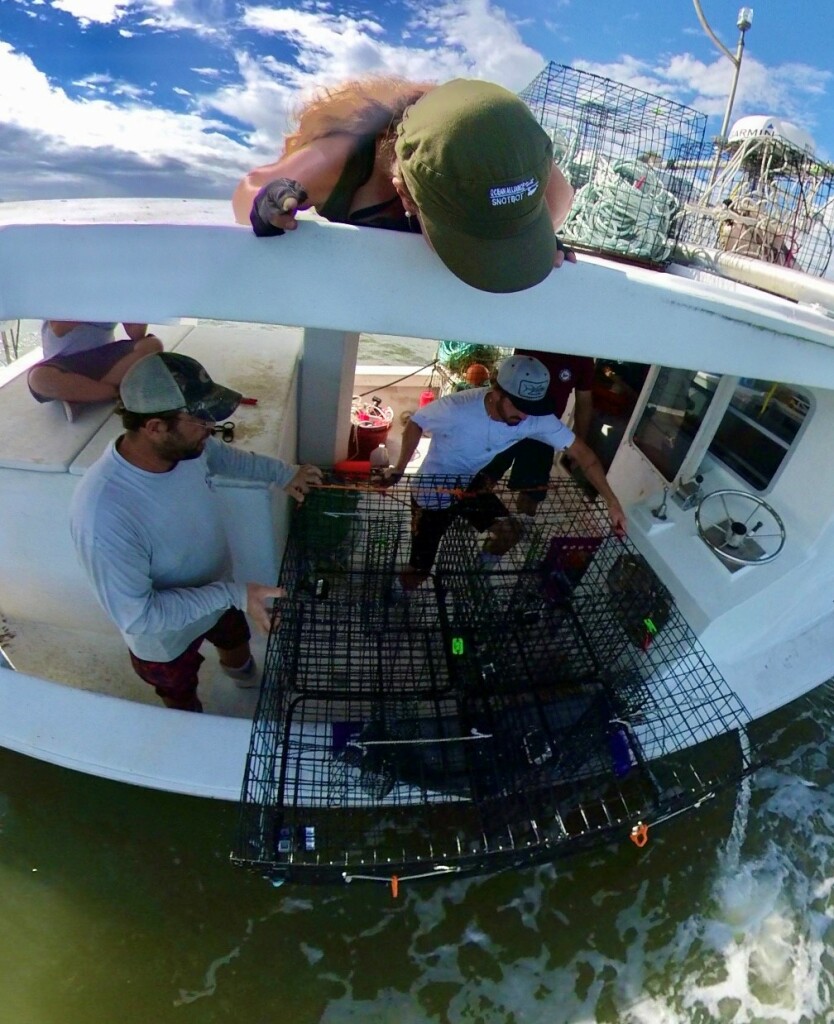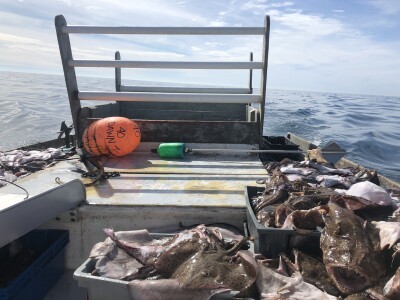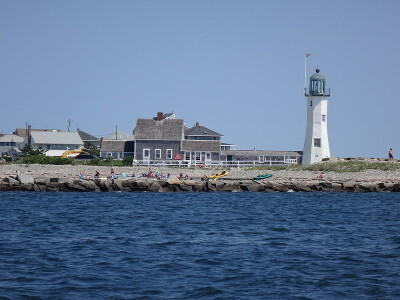For first time in nearly a decade, South Atlantic pot fishermen will be able to harvest black sea bass in winter months, bringing life back to an artisanal, yet economically important, fishery for Southern ports. NMFS recently granted an Exempted Fishing Permit — the first of its kind — that allows fishermen to deploy ropeless gear to catch the species.
The threat of entanglement with endangered North Atlantic right whales caused fisheries managers to close the fishery inside 90 feet of water during winter months, effectively closing 15,000 square miles of prime habitat to fishermen. North Atlantic right whales calve off the Florida and Georgia coasts in winter months.
Now fishermen from four states — North Carolina, South Carolina, Georgia and Florida — will be able to harvest black sea bass with ropeless gear when whales are present under the EFT issued to Sustainable Seas Technology, a nonprofit that works with commercial fishermen to test and deploy whale-safe fishing gear in North America and Europe.
Ropeless fishing technology is not without contention and controversy, with some stakeholders questioning its effectiveness, cost, and risks like ghost fishing on lost traps. There’s also concern that success with ropeless technology will lead to mandates in state and federally managed fisheries without consideration of the effects on fishing businesses, families and communities.
“From my standpoint, the fishery is either open or closed — open is a lot better,” says Scott Buff, owner of Sea Peddler Seafood in Supply, N.C. Buff has tested ropeless gear on his 34-foot vessel the F/V Reel-M-N.
“The gear is so simple to use, it’s stupid,” Buff says. “There’s a little bit of a learning curve, but the gear is easy to use and does what it’s supposed to.”
The fishery began in the early 1960s, when crab and shrimp fishermen found black sea bass could be caught with the same traps. Black sea bass are federally managed under the South Atlantic Snapper-Grouper Fishery Management Plan. For those who participate in the fishery, vermillion snapper, grouper, and trigger fish have the highest value, but those fisheries are normally closed in winter months, Buff says. Until 2013, black sea bass was the fishery that kept many boats working through the winter.
Fishermen self-funded a study in 2020 on the effectiveness of ropeless gear with Sustainable Seas Technology, which was awarded the EFP on Feb. 3. The exempt permit is effective through August 2024. During that time, fishermen and Kim Sawicki, founder and president of Sustainable Seas Technology, will continue to test and refine ropeless gear as well as conduct an economic effectiveness study. An extension can be requested at the end of the two-and-a-half-year permit.
“What we learn from our work here could benefit other pot fisheries facing entanglement issues,” Sawicki says, who also tests ropeless gear with Dungeness crab and spiny lobster fishermen in California, and Maine lobster fishermen in the Northeast. “But every fishery is different, what works for one might not work for another.”







